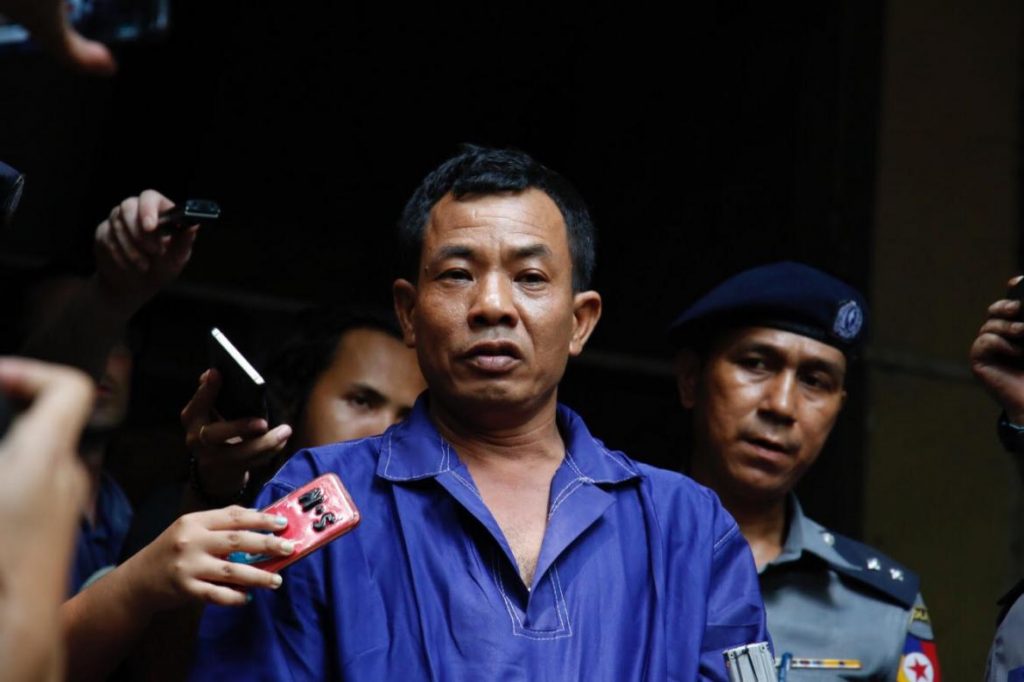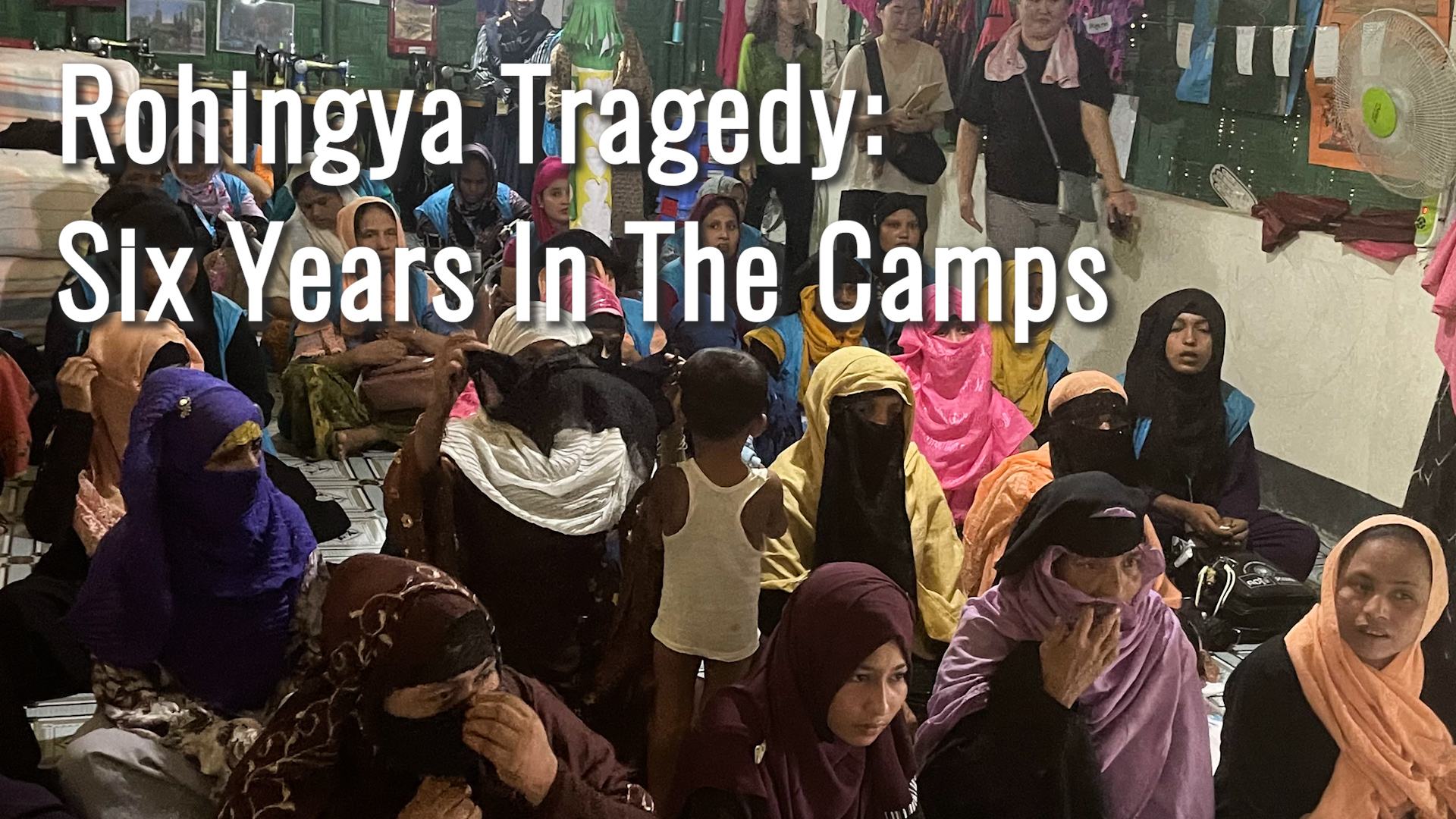By OLIVER SLOW | FRONTIER
YANGON — A police officer jailed after testifying in court that two Reuters journalists had been “set up” says his detention is an attempt to stop other whistleblowers from speaking out in the case.
Police Captain Moe Yan Naing today faced questions from both the prosecution and defence about testimony he gave on April 20 in which he said police were ordered to entrap Ko Wa Lone and Ko Kyaw Soe Oo.
During several hours of testimony, Moe Yan Naing repeated his earlier statement that he and other police had been ordered to set up Wa Lone and Kyaw Soe Oo.
“Putting me in prison stops other police officers from saying the truth,” he told reporters outside Insein Court on Wednesday.
Support more independent journalism like this. Sign up to be a Frontier member.
After his testimony on April 20 Moe Yan Naing, who was already in detention, was sentenced to one year in prison for violating the Police Disciplinary Act. At court today he wore a blue jumpsuit, in contrast to the police uniform he had been wearing in April.
At a hearing on May 2, the judge had rejected a request from the prosecution to declare Moe Yan Naing a “hostile witness”, which would have seen his testimony downgraded.
Speaking outside court today, U Khin Maung Zaw, a representative for the defence, said he was satisfied with the day’s developments. It was the 18th time Wa Lone and Kyaw Soe Oo have appeared in court since their arrest in December.
“Moe Yan Naing was cross examined, and he was not declared a hostile witness,” Khin Maung Zaw told Frontier. “He answered the questions according to what he has already said. His story didn’t shake. It’s very beneficial for the defence side.”
At the time of their arrest, Wa Lone and Kyaw Soe Oo were investigating the killing of 10 Muslim men at Inn Din village in northern Rakhine State’s Maungdaw Township in September.
The killings, documented in a gruesome account published by Reuters in February, took place during military “clearance operations” in northern Rakhine State that prompted an estimated 700,000 people – overwhelmingly Rohingya – fleeing across the border into Bangladesh.
If found guilty, the journalists face a potential 14-year jail term under the Official Secrets Act for handling confidential documents.
The next hearing is due to take place on May 16.







